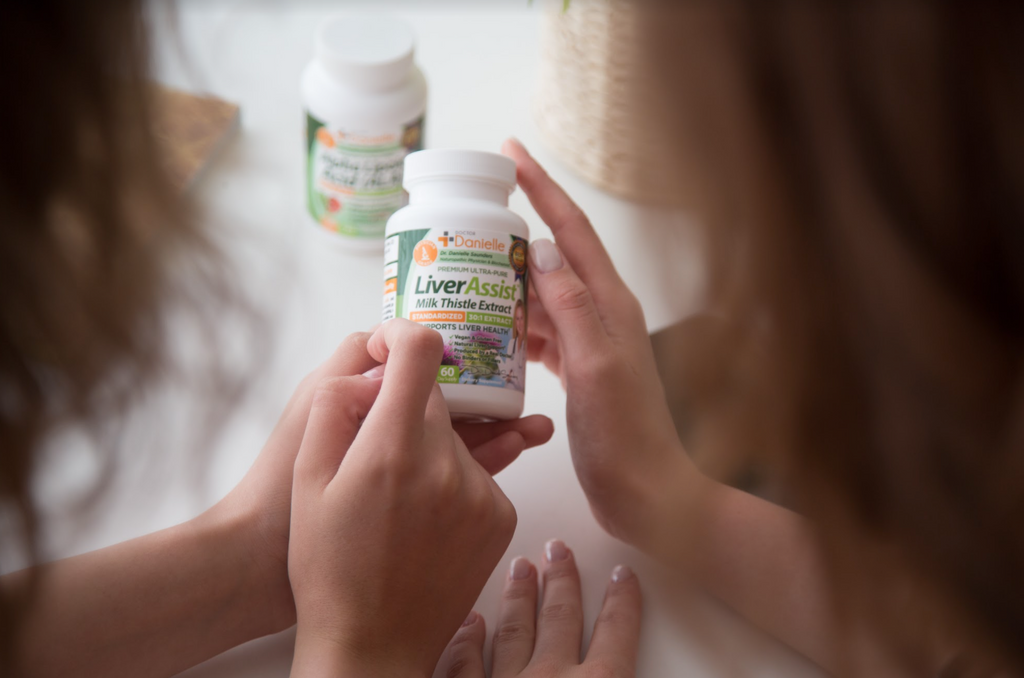The festive party season is fast approaching. Of course, with parties come bottomless margarita lunch hours and full-bottle wine nights–which means the resulting, pesky hangovers are nearly inevitable, especially for the less careful. And if you’ve ever woken up after guzzling alcohol with a pounding headache, nausea, dizziness, and sensitivity to light or sound, you’d know that a hangover is a lot less fun than your night out.
This begs the question… Other than taking up full residence on your couch and waiting for the pain to subside with time, how do you cure a hangover if you’d prefer to avoid pharmaceuticals?
Why Do Hangovers Occur In The First Place?
Spoiler alert: there is indeed a natural solution that’ll provide some much-needed relief from all the pounding in your head. Before that, though, it’ll be useful for you to understand why you feel like such garbage in the first place. Although still under debate, the mechanism of a hangover seems to involve several factors. Regardless, it appears that at least part of it stems from the way alcohol is metabolized (1, 2).
Your liver is responsible for breaking down all that booze into acetaldehyde–which is considered highly toxic and is known to trigger an unpleasant inflammatory response (3, 4, 5). A 2000 study published in Alcoholism: Clinical and Experimental Research journal found that elevated acetaldehyde levels lead to symptoms like high heart rate, nausea, and headache (6). Acetaldehyde only remains in your system for a brief period. But if you drink too fast or too much, the enzymes responsible for breaking it down into the more benign chemicals won’t be able to keep up.
But of course, an elevated level of acetaldehyde isn't the only thing making you feel miserable. Congeners can exacerbate the awful effects of acetaldehyde (7, 8, 9). These are chemicals that result from the fermenting process. To make matters worse, ethanol (alcohol’s active ingredient) also messes with your body in various ways. A good example is that it leaves you dehydrated, which, imaginably, hardly helps your morning-after nausea and headache (10, 11).
Enter, Milk Thistle

Because alcohol consumption is the overarching reason behind your hangovers, the surefire way to avoid feeling miserable altogether is… Not drinking too much. But that's not really helpful. Besides just drinking less next time, a useful natural solution would be something called milk thistle.
This is a herbal remedy derived from the actual milk thistle plant (Silybum marianum), a prickly flowering plant with a single purple flower in the middle (12). Milk thistle contains a high amount of silymarin–a group of plant compounds (i.e. flavonoids) known to have antioxidant, antiviral, and anti-inflammatory properties (13, 14, 15, 16). In fact, milk thistle has traditionally been used to treat gallbladder and liver disorders, prevent and treat cancer, and even promote breast milk production for thousands of years.
Milk Thistle and Liver Health

Of all the potential health benefits milk thistle can bring about, the most relevant one here would be its effects on the liver. Interestingly, numerous studies conducted recently have confirmed our ancestors' beliefs: that milk thistle can indeed help cleanse and detoxify (i.e. detox) the liver–in turn, promoting overall liver health. And it's all because of its high silymarin content, which reduces free radical production.
As a testament to its effectiveness, milk thistle is widely used as a complementary therapy by individuals who have liver damage due to conditions like non-alcoholic fatty liver disease, alcoholic liver disease, hepatitis, and even liver cancer (17, 18, 19). The herbal remedy is also used to protect the liver against toxins like amatoxin, a subgroup of at least 9 related toxic compounds produced by the death cap mushroom, and is deadly if ingested (20, 21).
Evidence also shows liver function improvement in individuals with liver diseases who've taken a milk thistle supplement–suggesting that it could reduce liver damage and liver inflammation (22). To top it all off, a 2014 study published in the World Journal of Hepatology found that milk thistle may slightly extend the life expectancy of people with cirrhosis of the liver due to alcoholic liver disease (23).
Is Milk Thistle A Hangover Cure?

Given milk thistle's numerous liver-beneficial effects, a specific question must have popped into your mind: 'Can milk thistle be the cure for hangovers?' Not quite. Even science has yet to come up with a cure that'll eliminate hangovers. That said, milk thistle can be an effective way of alleviating the nasty hangover symptoms after a night filled with copious amounts of fun and alcohol. Remember how the consumption and resulting breakdown of booze lead to the circulation of high amounts of toxic by-products (e.g. acetaldehyde and congeners) in your body–which are, in turn, believed to play a contributing role to hangovers?
Well, studies on silymarin (the active compound found in milk thistle) suggest that the compound may detoxify some of the harmful compounds in alcohol, negating their effects and protecting your liver. As a potent antioxidant, silymarin also neutralizes damaging free radicals produced as your body metabolizes alcohol (24). Additionally, the compound may switch off the inflammatory signals activated by alcohol, reducing the intensity of body aches and headaches you experience during a hangover (25).
Other Health Benefits Of Milk Thistle

As it turns out, milk thistle isn’t only beneficial for liver health. There are many other health benefits to supplementing with this natural herbal remedy as well.
May Protect Against Cancer
First up: protection against cancer. Studies show that silymarin–milk thistle's active compound–may lower the risk for cancer development by boosting the immune system, fighting DNA damage, and reversing cancerous tumor growth. In addition to blocking breast cancer, several animal and test-tube studies have shown that it may also protect against other types of cancer, including lung and prostate cancer (26). According to researchers at the University Magna Graecia Department of Experimental and Clinical Medicine, silymarin can exert anti-cancer properties due to its ability to block the binding of toxins to the cell membrane receptors (27).
May Help Lower High Cholesterol
Although more formal research is still needed, preliminary studies also point at another one of milk thistle’s health benefits: the potential lowering of high cholesterol levels by reducing inflammation and preventing oxidative stress damage within the arteries (28). When used in combination with other traditional treatment methods, it’s believed that silymarin can improve levels of total cholesterol, bad LDL cholesterol, and triglycerides.
May Help Control Or Prevent Diabetes
More impressively still, there's some compelling research showing that the silymarin supplementation, along with conventional treatments, can help control type 2 diabetes symptoms by promoting better blood sugar control. For example, a 2006 study published in Phytotherapy Research found that when diabetic patients were given silymarin extract over 4 months, their fasting blood sugar and insulin levels improved significantly compared to those who'd received a placebo (29).
Should You Take Milk Thistle Daily?

With such an impressive slew of health benefits, you're likely thinking of taking milk thistle daily–and not just on days you're struggling with a hangover–for optimal functioning. The question is… Should you? Well, why not? Studies show that milk thistle is safe for most people to take orally and that it's generally well-tolerated (30, 31). The most common side effects are mild, including an upset stomach, nausea, diarrhea, and allergic reactions (32).
Of course, as with starting on any new supplement, you should check with your primary healthcare provider before taking milk thistle in case it interacts with your medications or any underlying health conditions. That said, you may wish to avoid taking milk thistle if you are pregnant, have an allergy to plants in the Asteraceae or Compositae families (which include ragweed), or take blood sugar medications as milk thistle may lower your blood sugar to dangerously low levels.
What’s The Best Milk Thistle Supplement?

And once you’re all cleared to supplement with milk thistle, note that doses vary among brands; not all products contain the same amount of active ingredients. To ensure that you’re getting the most bang for your buck, you should look for a supplement that’s standardized to contain 70% to 80% silymarin. Also, since the Food and Drug Administration doesn't regulate supplements the same way it regulates pharmaceuticals, you should look for milk thistle supplements that have been verified for safety and content by an independent lab–so that you know you're getting what you're promised on the label.
Don’t have the time to comb through the supplement shelves by yourself? Here’s an easy solution. Try out Dr. Danielle’s Liver Assist, which contains milk thistle that’s been standardized to contain a minimum of 80% silymarin (i.e. flavonoids). Better yet, you can rest assured of the supplement’s effectiveness and safety because it’s made from the highest-quality organic milk thistle extract and is compliant with the Good Manufacturing Practice (GMP) practices (it’s GMP certified!) This way, you know–for sure–you’re reaping all the health benefits the natural herbal remedy has to offer.







